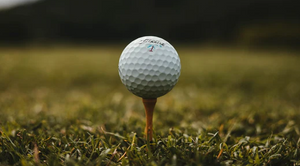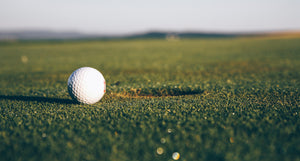Do Golf Balls Go Bad?
If you're a regular golfer, you know how often things wear down and need replacing. In a sunny season, shirts get sweated through in weeks. In a rainy season, shoes and bags can take an even worse beating.
If you’ve played golf before, you know your clothes and accessories will endure a lot of wear and tear. But one item that gets overlooked during seasonal replacements is the golf ball.
Golf balls don’t usually get much attention as an accessory worth cleaning, taking care of, and replacing. Indeed, you might be asking: Is it necessary? Do golf balls go bad?
Find out more about golf balls, including whether they go bad and what you can do to take better care of them.
Do Golf Balls Go Bad Over Time?
Whether golf balls go bad over time does not have a straightforward answer. So much depends on what type of ball you play with, how often you play, the climate and terrain where you play, what club you use most frequently, and more.
But if there had to be a single-word answer, it would be no. Manufacturers design modern golf balls to be tough. The synthetic rubber that makes up the core of modern golf balls is quite trusty and durable. Then, they receive a coating in multiple layers of durable paint called “surface covers.”
The surface of the ball is most liable to take damage. You can scratch, nick, ding, dent, and even crack the balls in rare cases, but you’d need to try to do so. Because manufacturers design them to be so hard and durable, they can crack and shatter only when exposed to intense pressure.
That said, though most golf balls are relatively inexpensive, you don't want to go through a three-pack a week. That’s why learning what takes the most out of them is a smart move.
Is it playing on links with lots of sand traps and other harsh areas? Is it playing in inhospitable weather?
Paying attention to your golfing habits and how they affect all the accessories lets you adjust your habits.
Do Golf Balls Get Waterlogged?
One of the most common hazards in golf courses you may worry about when it comes to ball wear and tear is water hazards.
Most courses have some kind of pond, lake, fountain, or other water feature. It's common to accidentally drive your ball into a water feature and have to retrieve it.
If your ball becomes exposed to water for long periods, is it okay to keep using it? The answer, again, is yes. Golf balls undergo very little change when exposed to water for long periods, even after repeated exposures.
Indeed, the cover protects the ball from becoming waterlogged. The cover consists of thermoplastic polyurethane, which is a waterproof membrane. With several coatings of this material, the ball exterior achieves robust protection from water.
When Should I Replace My Golf Balls?
Golf balls don't wear down too much, even if you're a vigorous player. But you will start to notice some minor changes after a long time.
You'll notice various scratches and dents, and you may wonder when it'll become enough to want to get the balls replaced.
If you're tuned into your game, you may notice minute shifts in the drive, curvature, and trajectory of your swings. The ball will start to go slightly off course, and you'll miss your shot. Then know that you need to replace your golf balls.
We don’t recommend letting your ball get to that point, though. You've gone too far if you've already worn through the four layers of hard and soft material used to coat the ball and make it almost unbreakable.
Fortunately, golf balls are available to purchase everywhere. They're not too expensive, and they come in varieties to suit any golfer’s preferences.
Treat yourself to a fresh new can of golf balls, and forget your worries that your game will be off because of a technical issue.
Frequently Asked Questions
Do Unused Golf Balls Go Bad?
There's no way that an unused ball sitting in the bottom of your bag will go bad. You don't have to worry about a new golf ball going soft or losing that taut firmness that allows it to sail beautifully over the course.
Indeed, a potential problem with golf balls is that they don't decompose fast enough, taking anywhere from 100 to 1000 years to break down. The durability is good news for golfers, but not so much for the environment. All we can do is try to perfect our swings to avoid losing too many of them in the water.
Are There Waterproof Golf Balls?
There are quite a few different balls, from one-piece, two-piece, three-piece, and higher. Each “piece” refers to the exterior coatings. You’ll also find low spin, medium spin, high spin, and more. Balls specially marked as waterproof, though? You aren't going to find them.
That's because regular balls are already virtually waterproof. A good golf ball should float in salt water and sink to the bottom of freshwater. That's the ingeniousness of their design—they're light and durable at the same time.
Can I Make My Golf Balls Last Longer?
You can certainly take proactive measures to make your balls last longer. You can clean them, store them in a dry place to prevent mold build-up, and avoid excessive wear like the kind of pressure that could lead to cracks.
Treat all your gear and accessories the way you treat your favorite iron or that brand new bag like you'd treat a newborn—gingerly, with love and care.
Taking Care of Your Gear
When you take care of your gear, it takes care of you, and that starts with having the right equipment.
At STITCH Golf, we supply stylish and functional golf gear, from golf bags to valuables pouches and more. Invest in high-quality, long-lasting equipment today and see how much longer your golf balls last.


